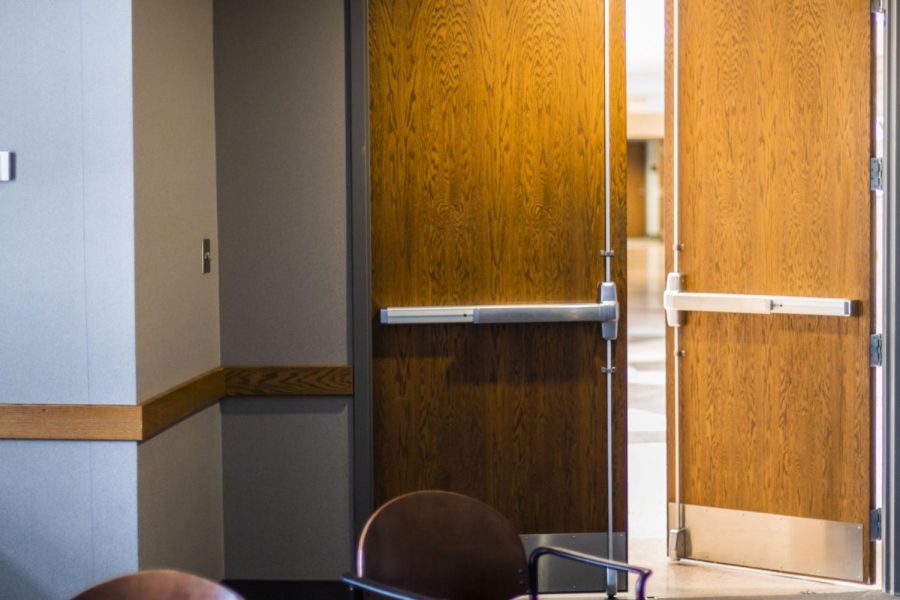Point/Counterpoint: Leaving class in the middle of a lecture
The college experience consists of having total freedom, especially when it comes to attending classes. Hear what Opinion Editor Summer Fitzgerald and Media Editor Zulfiqar Ahmed have to say about it.
Zulfiqar Ahmed
Continuously leaving classes can have a number of impacts on a college student’s career.
January 19, 2022
Point: It’s disrespectful and distracting to abruptly exit a classroom
Zulfiqar Ahmed, Media Editor
Leaving a class with no reasoning given to a professor is very disrespectful. Students get distracted and immediately lose encouragement to stay in the class themselves. It causes tiny disruptions that, over time, build up and create a sense of unimportance about a class.
Professors can also lose morale and interest in teaching a class that regularly has low attendance. Students frequently leave right after attendance is accounted for, creating the impression that the class content is unimportant or boring.
The idea that college is an open space where you can do whatever you want is, in the big picture, taking away from the entire experience.
If the professor does not have an interesting approach to their teaching methods, then there are a number of ways to communicate this effectively. Let them know the reasons why you are not able to stay in class and have very low retention.
If the students in your class are the reason you can’t stay, then speak up or express your concern to your peers or even the professor. Leaving the class helps nobody — not the professor, not the other students, not yourself or your grades, or even your college experience.
Making a habit of unnecessarily leaving class is not healthy for anyone involved. Try to find a solution that fits best for you in a way that helps you reap the benefits of your education.
Counterpoint: College students are adults with the freedom to leave class
Summer Fitzgerald, Opinion Editor
College students are full adults and should be treated as such. Most of us pay for our education, pick out our classes and support ourselves all on our own. Therefore, if we want to be excused from a class or leave a class, that is completely our choice. We do not owe anything to the professors or other students.
Unlike K-12 education, being in a college classroom is not required by law. Although some may argue that it is not effective, wise or financially responsible to leave a lecture in the middle of it, it is still our right to have a choice to do so.
College students range from the ages of 18 and up. This is a wide variety, as people frequently have children, families, jobs, or outside commitments that require full attention alongside their college education. Not every college student has the privilege or ability to sit in a classroom, focused and uninterrupted, for several hours a day. Professors and students alike must accept that people can have outside priorities while still being in college.
Leaving a classroom does not communicate the unimportance of education at all, especially not to a professor. Most of them have taught countless classes throughout their career and would not bat an eye to a student stepping outside or leaving a lecture.
Professors are not always perfect, either. Sometimes, they may not show up to class, have limited availability and overall may not be a great resource to students. They still take their career seriously and are deserving of a job just as much as we are deserving of an education.
There is no cookie-cutter model for a perfect, successful college student. Just because a student may be exiting class or have poor attendance does not mean they are not successful.







